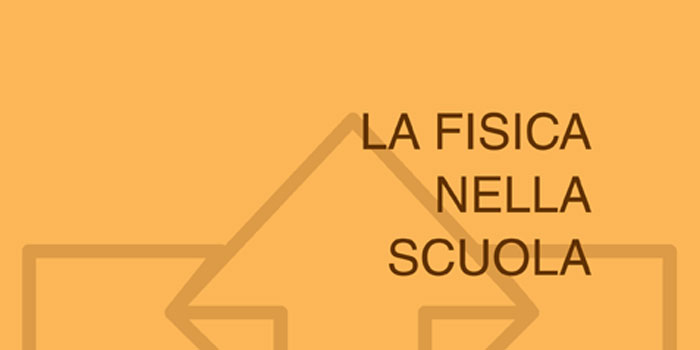Articoli rivista
 Anno XLIV - n.2 - aprile/giugno 2011
Anno XLIV - n.2 - aprile/giugno 2011 La meccanica di Wile Coyote
In secondary school dynamics pupils are usually asked to solve problems that concern rigid bodies. Inspired by “cartoon behaviours”, this paper studies what happens when the end of an elastic beam receives a blow and the beam starts moving. […]
 Anno XXV - n.3 - luglio/settembre 1992
Anno XXV - n.3 - luglio/settembre 1992 La metrologia verso l’unificazione europea del 1993
Since 1971 EEC is giving indications to the member States on the adoption of increasingly unified metric units, to which each State responded by promulgating appropriate laws. After a short history of the S.I., this article comments on the Italian laws and the public perception of the problem and gives information about the penalties and risks connected with using the improper units. […]
 Anno LI - n.2 - aprile/giugno 2018
Anno LI - n.2 - aprile/giugno 2018 La misura della costante di Planck: una proposta di attività laboratoriale
In the 2014/2015 school year, the Respighi Scientific High School started the “Fare Fisica: Planck 2.0” (Making Physics: Planck 2.0) project, aiming to challenge our best students thanks to the use of the laboratory. For this purpose we chose a modern physics experiment: the measurement of the Planck constant by means of the characteristic voltage – current of a LED. […]
 Anno XXXIII - n.4 - ottobre/dicembre 2000
Anno XXXIII - n.4 - ottobre/dicembre 2000 La nascita e la prima affermazione della teoria di campo
The developments that, starting from the experiments of Oersted, produced the first enunciation of field theory are examined. Some details of the works of Faraday and his use of analogies are discussed, followed by Maxwell’s interpretations and mathematical models giving rise, […]
 Anno XXIX - n.3 - luglio/settembre 1996
Anno XXIX - n.3 - luglio/settembre 1996 La potenza della suggestione
About one hundred physics textbooks have been examined in this article to research the answer given to a simple question of hydrostatics shown in fig. 1. The number of wrong answers turned out to be surprisingly high. […]
 Anno XXVIII - n.1 - gennaio/marzo 1995
Anno XXVIII - n.1 - gennaio/marzo 1995 La pressione
The concept of pressure should be easy to understand; despite that, I’ve found frequent misunderstandings in students, teachers, and books. Is this quantity related to interaction or to the state of a system? Is it a vector, or scalar (or tensor) quantity? […]